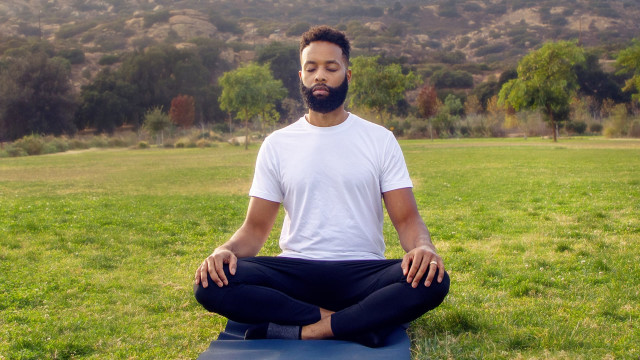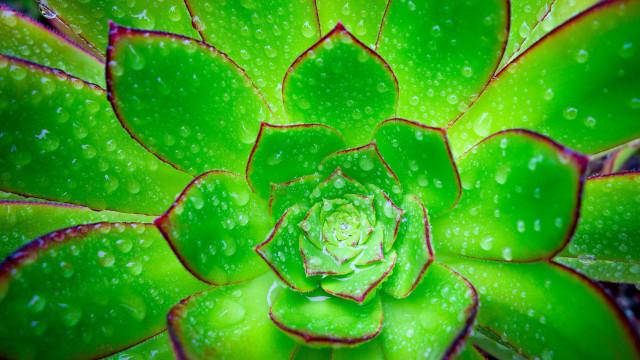Meditation Helps Personal Growth

Personal growth has been an integral part of wellbeing in mindfulness and psychological spaces. In fact, in 1989, Professor of Psychology at the University of Wisconsin-Madison, Carol Ryff developed one of the earliest, empirical models of psychological wellbeing.
A Psychological Approach to Wellbeing
Otherwise known as The Ryff Scale for Psychological Wellbeing, the survey considers a philosophical approach to understanding wellbeing in a field where historically, only scientific, and biological factors were examined. The Ryff Scale focuses on six areas: autonomy, environmental mastery, personal growth, positive relations with others, purpose in life, and self-acceptance. Respondents rate statements using a scale of one (strong disagreement) to six (strong agreement) and responses are totaled for each category, with half reverse scored.
While The Ryff Scale is predominantly used in conjunction with wellness courses at universities, or to measure the psychological wellbeing of students before and after their college career, many researchers point to this measuring system as a tool to assess the psychological wellbeing of young people all over the world, in order to better understand whether wellbeing improves with age due to higher levels of autonomy.
In 2018, researchers Jie Gao and Ros McLellan published a study on the effectiveness of The Ryff Scale in assessing the psychological wellbeing of adolescents with a median age of 13.5 in China. This was based on the fact that previous research revealed inconsistent findings on the reliability and validity of The Ryff Scale as there is no system to demographically contextualize data. Respondents completed a shorter version of the test, and results illustrated that of the six areas, autonomy presented the most irregularities, due to the lack of wording that spoke to the student’s background and experiences.
Since then, researchers have suggested that future studies geared towards adolescents should incorporate language and examples which speak to that age group and background. However, The Ryff Scale is still an effective tool to measure psychological outcomes of experiences related to wellbeing, which, like a holistic approach, all correlate with personal growth.
The Pillars of Wellbeing: A Holistic Approach
In the mindfulness space, personal growth is defined by our ability to cultivate a relationship with each pillar of wellbeing. The Pillars of Wellbeing include mental, emotional, professional, physical, spiritual, community, and environmental wellbeing. “It’s important to remember personal growth is multi-dimensional, and each part of it impacts the other because they're so correlated,” says Prakriti Poddar, Global Head of Mental Health and Wellbeing at Roundglass.
Mental and emotional wellbeing are related to one another because they both predict behavior, while physical wellbeing relates to our ability to effectively move our body, drink water as well as eat nutritious food. Spiritual wellbeing defines our capacity to recognize our collective humanity. “It’s important to recognize that this [experience] is not just happening to me, it's probably happening to everybody and if we are able to help others through our own journey people get uplifted,” says Poddar.
Professional wellbeing is tied to our ability to live a life of purpose and community wellbeing relates to the people we interact with every day. Social wellbeing is defined by our ability to give back, and environmental wellbeing is defined by our relationship with the natural world.
The Ryff Scale and Pillars of Wellbeing include personal growth as a catalyst for overall health, but it’s important to remember that continued improvement in each Pillar of Wellbeing or area of The Ryff Scale is personal growth. “If I’m moving forward in each one of these, that makes up my personal growth,” says Poddar.
An effective way to ensure continued personal growth can be through meditation.
To learn how you can perceive imperfections and challenges as opportunities for growth, try this Roundglass course, Growth Mindset, by mindfulness teacher Rachael Kable.
Finding Your Flow
Scientifically meditation takes place when your brain waves move from a high beta state to alpha theta, which allows your mind to expand into a quiet, still, focus. While sitting in mudra may work for others on their journey of personal growth, Poddar finds flow in movement. “My deepest meditations happen when I’m scuba diving and I sit in my breath. I'm mindful and the world opens around me,” she says.
Any activity that instills a deep focus and increases that sense of timelessness is meditation. It relates to personal growth as the brain is inadvertently learning new skills. When we learn new skills, we experience positive emotions that can help to increase our desire to participate in that activity.
This is because the brain likes to engage in activities that feel good, regardless of how they may affect you, so providing opportunities to engage in healthy actions that add to your skillset is an optimal way to pursue personal growth. “When something feels good, you continue to do it and when it becomes a habit, it just happens. So, when the brain gets used to that base of meditation, that calm of meditation, it wants to regularly achieve that state,” says Poddar.
Practice Self-Love and Acceptance as You Pursue Personal Growth
The Ryff Scale for Psychological Wellbeing describes a high scorer on the self-acceptance scale as a person who “Possesses a positive attitude toward the self; acknowledges and accepts multiple aspects of self, including good and bad qualities and feels positive about past life.” This is important because failure is an integral part of growth. It is also an emotional experience, which can cause you to over personalize past mistakes, and this can lead to a degradation of self-worth resulting in avoidance or denial.
Both reactions negatively affect your ability to grow because they stem from fear or anger which prevent you from being receptive to any opportunities to learn. “In these moments, self-compassion can be a powerful practice to re-orient our understanding of what happened and illuminate the places where we can learn and grow,” Roundglass Mindfulness Teacher, Grace Edmunds says.
Meditation can help to identify when you are being self-critical and re-orient your anger or shame by questioning and understanding it, “Meditation settles your mind which allows you to make good decisions. So, whatever you need to do to achieve that settling of the mind, whether its breathwork, tennis or scuba diving, do that,” says Poddar.
Try this meditation class by trauma expert Vimalasara, to learn how you can turn negative feelings toward yourself into love.
How to Mindfully Set Goals as You Pursue Personal Growth
Setting goals can help to identify areas of growth or assist in refining purpose. However, it’s important to understand the reason behind your goals to gain clarity on the consequences of achieving them because this knowledge can serve as motivation. “I recommend spending some time on each goal, perhaps visualizing yourself having accomplished that goal and "seeing" the impact it has not only on your life but on all those around you,” says Edmunds.
With the advent of social media, it can be more difficult to remain unaffected by social constructs of success. However, meditation can help to identify what experiences speak to your inner joy, as you learn to familiarize yourself with activities that move your brain to an alpha theta state. While some individuals may have the emotional, mental and financial bandwidth to pursue a career aligned with their purpose, Poddar urges all professionals to continue to seek out and connect with whatever calls, as those opportunities can also provide a pathway to financial freedom, “When you are getting out of your organization or education, and are figuring out your next steps, find that compass that you want to follow. Then you will achieve money, housing or that car,” says Poddar.
So, regardless of which approach to wellbeing resonates, remember that personal growth is a multifaced, subjective and lifelong practice.
Header Photo by: Maskot/Getty Images
Key Takeaways:
- Personal growth is an integral part of wellbeing.
- Practicing self-love is a form of personal growth.
- Mindful goal setting is critical to personal growth.






